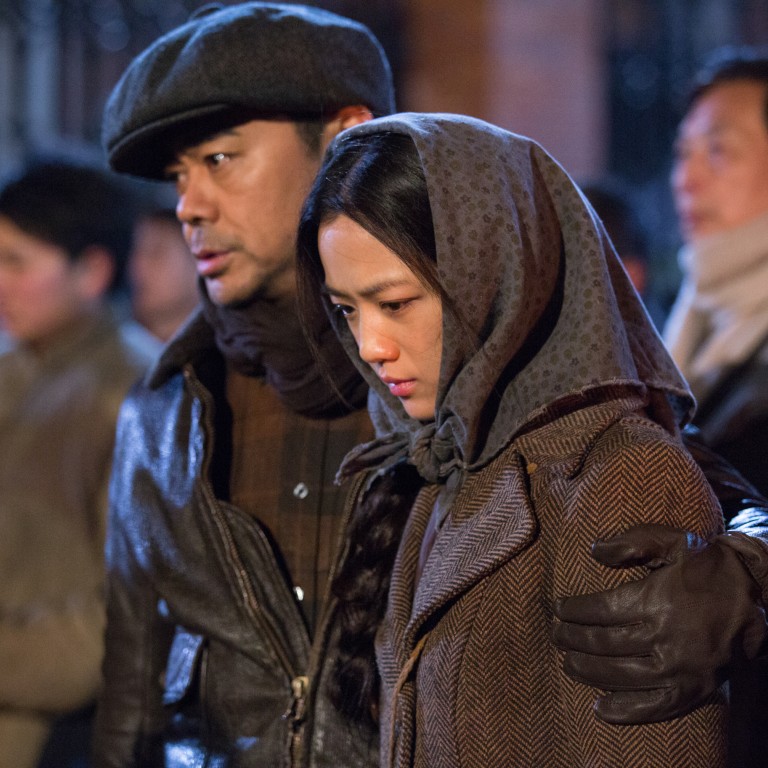
Review | Film review: A Tale of Three Cities – Mabel Cheung’s over-ambitious period romance
Story based on the lives of Jackie Chan's parents aims for epic sweep instead of focusing on the romance between its two main protagonists, and the various subplots are a distraction

With the prominent producing role that Mabel Cheung Yuen-ting took on Echoes of the Rainbow (2010) – her writer-director husband Alex Law Kai-yui’s award-winning melodrama – it may be easy to forget that the veteran director of An Autumn’s Tale and City of Glass hasn’t helmed a fiction feature of her own since 2001’s Beijing Rocks.
During the hiatus, Cheung made one documentary, Traces of a Dragon (2003), about action star Jackie Chan’s family history. That little-seen title didn’t just paint a vivid picture of the state of mainland China in the 1940s, but also revealed that Chan’s parents, Fang Daolong and Chen Yuerong (later as Charlie Chan and Lee-Lee Chan) worked respectively as a gangster and opium dealer during that period.
Cheung and Law had grown close to Fang before his death in 2008, and so it must have felt like a logical decision after Echoes’ success for the pair to flex their new-found financial muscle on a mega-budget dramatisation of Fang and Chen’s eventful life in a war-torn China. The epic scope of this premise, however, is an uneasy fit next to Cheung’s typically intimate touch of humanity.
At the heart of A Tale of Three Cities is the star-crossed affair between Fang (played by Lau Ching-wan in a partly dubbed role) and Chen (Tang Wei), who are as much thrust together by their tragic fates – he lost his spouse to disease; she lost hers in an air raid – as they’re no doubt also attracted by each other’s fierce and adventurous nature.
Apart from brief opening scenes that see Fang remind people in Hong Kong of his Shandong roots, real-life happenings after the couple reunited in this city in 1951 – including the birth of Jackie three years later – remain only an addendum to this war drama/period romance. Considering the star power of its two leads, it may be a larger pity that this film wasn’t conceived as more of a two-hander.

Instead, as the action inevitably moves from Chen’s hometown of Anhui to chaotic Shanghai, and then eventually to the safety of Hong Kong, Cheung weaves in marginally extraneous subplots, from Fang’s deadly espionage activities to the awkward courtship of two of the protagonists’ Shanghai friends (Jing Boran and Qin Hailu). All of these are at once fascinating and beside the point.
At a protracted 130 minutes, A Tale of Three Cities is a sombre drama that feels as if it’s two or three fine movies rolled into one – only to come out less than the sum of its parts. It doesn’t claim to provide a panoramic view of China’s contemporary history, but the film works so hard at getting that elusive epic touch, its central romance sometimes takes a backseat.
A Tale of Three Cities opens on September 3

